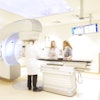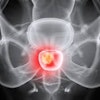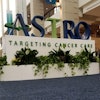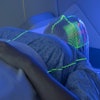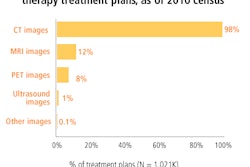Dear Radiation Oncology Insider,
The American Society for Radiation Oncology (ASTRO) annual meeting was busy and bustling, and the venue of San Diego was -- as expected -- beautiful and balmy. Not many journalists were in attendance, but AuntMinnie.com was, and we'll be providing lots of conference coverage over the coming weeks.
According to estimates from the American Cancer Society, almost 218,000 men in the U.S. alone will be diagnosed with prostate cancer in 2010, as will many tens of thousands more throughout the rest of the world. ASTRO held a press conference to announce practice-changing findings for the treatment of men with locally advanced disease. Read about it by clicking here.
And there was also good news for patients with organ-confined, low- and intermediate-risk prostate cancer, specifically concerning survival, disease recurrence, and toxicity outcomes for those who received state-of-the-art hypofractionated stereotactic radiation therapy. Be the first to read the encouraging news in this newsletter's Insider Exclusive that you, as an Insider subscriber, have access to several days in advance.
Also check out the stories below for more good news in your Radiation Oncology Digital Community:
- From the ASTRO meeting, aspirin may reduce the risk of metastasis and death in prostate cancer patients.
- For patients with muscle-invasive bladder cancer, the combination of chemotherapy and radiation therapy may be a viable alternative to radical surgery.
- For patients with rectal cancer, radiation therapy prior to surgery cuts the long-term risk of recurrence in half.
The ASTRO technical exhibition hall was clear evidence that there are more ways to deliver radiation therapy treatments than ever before. But are there enough radiation oncologists, medical physicists, and radiation therapy support staff to meet the demand? Find out what one report determined in its biannual market research on U.S. radiation therapy equipment purchasing trends and treatment utilization.
